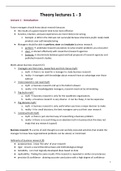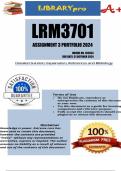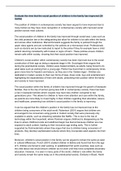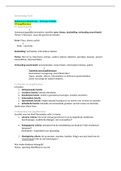Samenvatting
Summary BRM I lectures 1-2-3
- Instelling
- Vrije Universiteit Amsterdam (VU)
- Boek
- Marketing Research
This document includes lectures. The summaries include examples to understand the concepts more easily. This document includes lecture 1 up to 3. This is theoretical part of the course which will be a part of the exam as well.
[Meer zien]








